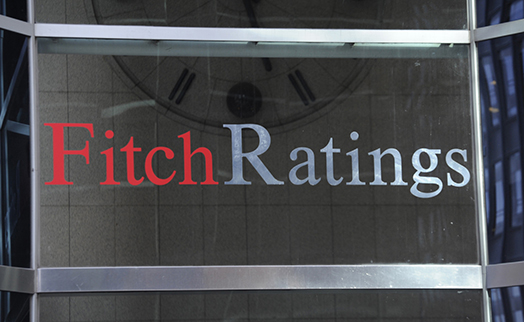YEREVAN, April 16 / ARKA /. Fitch Ratings says key risks have materialized in different CIS banking markets and, in some cases, remain sources of vulnerability. This, together with authorities’ responses to the crystallisation of such risks including provision of support or, in some cases, imposition of losses on third-party creditors, is one of the themes in a presentation published by Fitch.
According to the report titled ‘Key Materialized CIS Banking Risks,’ CIS banking systems have experienced various stresses over the last 12 years, with some significant common causes. Chief among these is mismanagement of foreign currency (FC) risks, such as FC lending to weakly hedged borrowers, an over-reliance on external FC debt and generally high dollarisation of liabilities, and sometimes maintenance of large short open currency positions.
When in 2014-2015 many regional currencies depreciated sharply, banks in Ukraine, Kazakhstan and Azerbaijan experienced significant worsening of credit losses associated with these exposures, and some failed as a result. This risk is still present, with FC lending particularly high in Azerbaijan (40%), Ukraine (48%), Belarus (49%), Uzbekistan (55%), Georgia (56%) and Armenia (58%).
Another common source of problems has been poor corporate governance, coupled with weak supervision, which resulted in sizable amounts of state money being required to resolve failed banks in Russia and Kazakhstan, where clean-ups are still ongoing. In Russia we estimate total clean-up costs to date at about USD80 billion, and we believe the Central Bank of Russia (CBR) could spend about another USD10 billion in the next two-to-three years, as it finalises the clean-up. Positively, as a result of the clean-up the CBR has managed to effectively stop capital outflows via doubtful transactions.
In certain cases (eg BTA in Kazakhstan, Privatbank in Ukraine and International Bank of Azerbaijan) authorities have decided to share the burden of supporting the banks with foreign creditors, who as a result incurred significant losses. For example, we estimate that in BTA alone foreign creditors lost about USD13 billion. As a result our bank ratings in Kazakhstan and Azerbaijan factor in no or only limited state support, although in Ukraine we believe the propensity to support state-owned banks remains high.
Retail overheating is another major risk, which already materialised in Russia in 2014-2015 when credit losses on high-margin consumer loans reached 25%, compared with an annual rate of 5%-8% previously. Russian banks subsequently tightened their approval rates, but from 2017 began to lend more actively again, which may lead to further overheating in two to three years. The CBR has so far sought – with limited success – to suppress growth through higher risk-weights, but may soon implement more radical measures (specifically, payment-to-income and debt-to-income limits), which, we believe, could be more effective. Retail lending growth in Kazakhstan is also quite high, exceeding that of nominal incomes, which could be a source of growing risks, while the local regulator has not yet taken decisive steps to curtail it.
‘Overall, we see some tightening of supervision across CIS markets, which is a positive development. However, given the significant issues in some countries it may take some time to address them, while some risks, such as dollarisaiton of balance sheets, will be very difficult to reduce or mitigate,’ the report says. -0-








